- Browse
- Arrays
Results for "arrays"
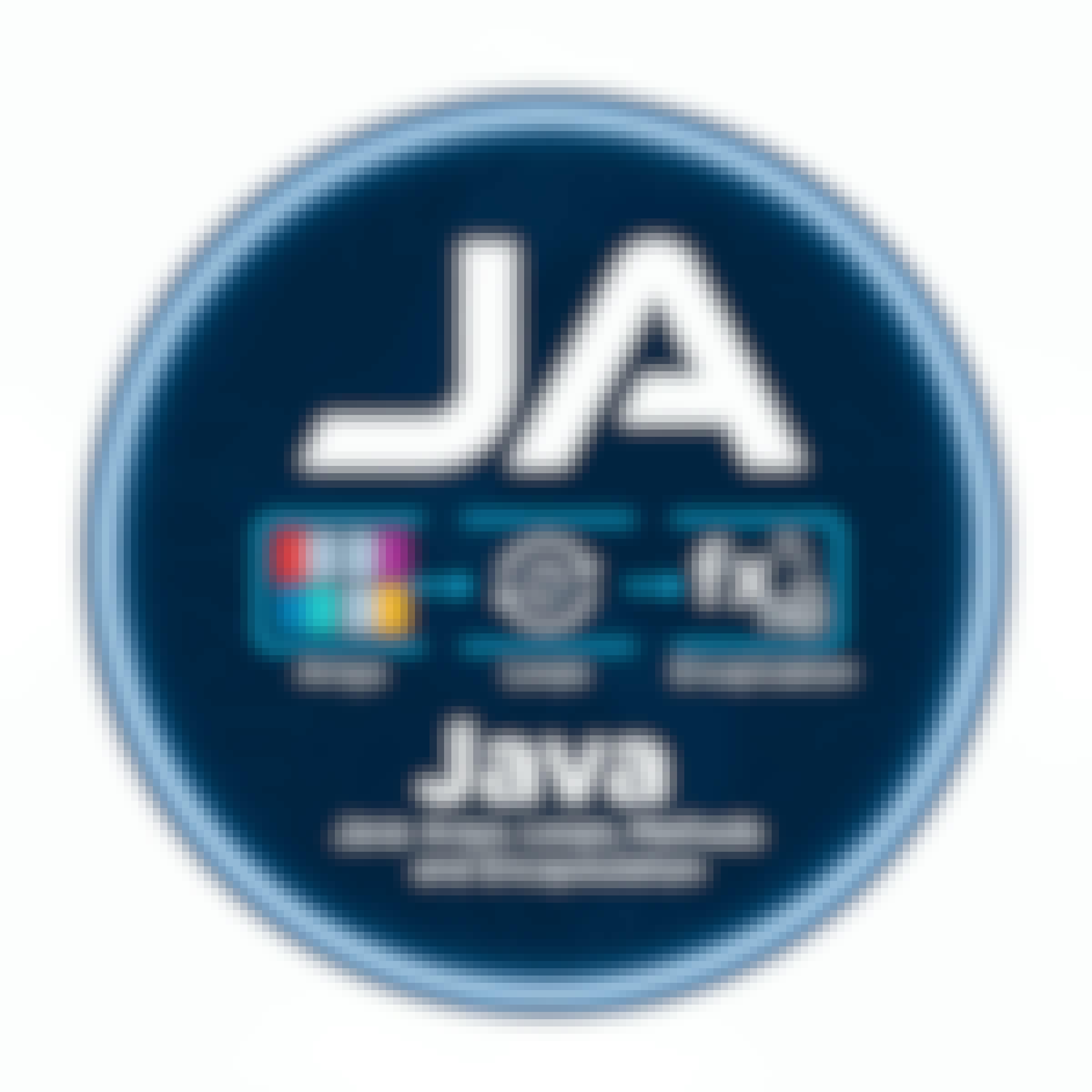 Status: NewNewStatus: Free TrialFree Trial
Status: NewNewStatus: Free TrialFree TrialSkills you'll gain: Object Oriented Design, Computer Programming
Intermediate · Course · 1 - 4 Weeks
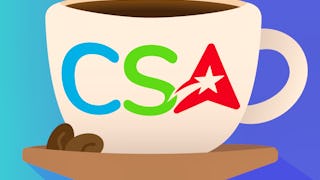 Status: Free TrialFree TrialU
Status: Free TrialFree TrialUUniversity of California San Diego
Skills you'll gain: Java, Computer Programming, Object Oriented Programming (OOP), Test Case, Pseudocode, Debugging, Algorithms, Program Development, Data Structures
Beginner · Course · 1 - 3 Months
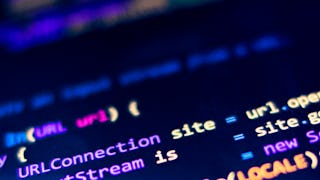 Status: Free TrialFree TrialU
Status: Free TrialFree TrialUUniversity of Pennsylvania
Skills you'll gain: Object Oriented Design, Java, Object Oriented Programming (OOP), Unit Testing, Java Programming, Application Development, Data Structures, Software Testing, Programming Principles, Test Driven Development (TDD), Computer Programming
4.5·Rating, 4.5 out of 5 stars330 reviewsBeginner · Course · 1 - 4 Weeks
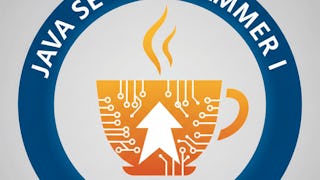 Status: NewNewStatus: Free TrialFree Trial
Status: NewNewStatus: Free TrialFree TrialSkills you'll gain: Java Programming, Java, Object Oriented Programming (OOP), Oracle SQL Developer, Oracle Databases
Intermediate · Specialization · 1 - 3 Months
 Status: NewNewStatus: Free TrialFree Trial
Status: NewNewStatus: Free TrialFree TrialSkills you'll gain: Debugging, C++ (Programming Language), API Design, Program Development, Software Documentation, Pseudocode, Software Architecture, Software Design, Maintainability, Computational Thinking, Data Structures, Programming Principles, Technical Documentation, Computer Programming, System Programming, Generative AI, Software Development, Computer Programming Tools, Data Validation, Integrated Development Environments
Beginner · Professional Certificate · 3 - 6 Months
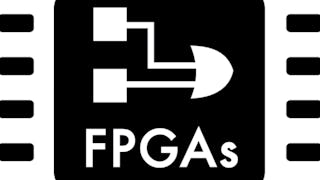 Status: Free TrialFree TrialU
Status: Free TrialFree TrialUUniversity of Colorado Boulder
Skills you'll gain: Field-Programmable Gate Array (FPGA), Hardware Design, Electronic Hardware, Electronic Systems, Embedded Systems, Application Specific Integrated Circuits, Eclipse (Software), Technical Design, Electronics Engineering, Electrical and Computer Engineering, Test Case, Program Development, Integrated Development Environments, System Design and Implementation, Computer Architecture, Hardware Architecture, Software Development, Verification And Validation, Embedded Software, Functional Design
Build toward a degree
4.5·Rating, 4.5 out of 5 stars1.7K reviewsIntermediate · Specialization · 3 - 6 Months
What brings you to Coursera today?
 Status: NewNewStatus: Free TrialFree Trial
Status: NewNewStatus: Free TrialFree TrialSkills you'll gain: JSON, Data Structures, Algorithms, Web Development Tools, Javascript, Development Environment, Integrated Development Environments, Computer Programming, Application Programming Interface (API), Debugging, HTML and CSS, Object Oriented Programming (OOP), Program Development, Computational Thinking, Performance Tuning
Beginner · Specialization · 1 - 3 Months
 Status: Free TrialFree TrialU
Status: Free TrialFree TrialUUniversity of Colorado Boulder
Skills you'll gain: Theoretical Computer Science, Algorithms, Data Structures, Graph Theory, Operations Research, Public Key Cryptography Standards (PKCS), Computational Thinking, Computer Programming, Programming Principles, Cryptography, Computer Science, Pseudocode, Applied Mathematics, Advanced Mathematics, Mathematical Theory & Analysis, Tree Maps, Encryption, Combinatorics, Python Programming, Analysis
Build toward a degree
4.6·Rating, 4.6 out of 5 stars883 reviewsAdvanced · Specialization · 1 - 3 Months
 Status: NewNewStatus: Free TrialFree Trial
Status: NewNewStatus: Free TrialFree TrialSkills you'll gain: C++ (Programming Language), Object Oriented Design, Object Oriented Programming (OOP), Debugging, Data Structures, C (Programming Language), Development Environment, Software Design Patterns, Programming Principles, Computational Thinking, Computer Programming, Integrated Development Environments, File Management, Algorithms, Maintainability, Simulations, Data Validation
Intermediate · Specialization · 1 - 3 Months
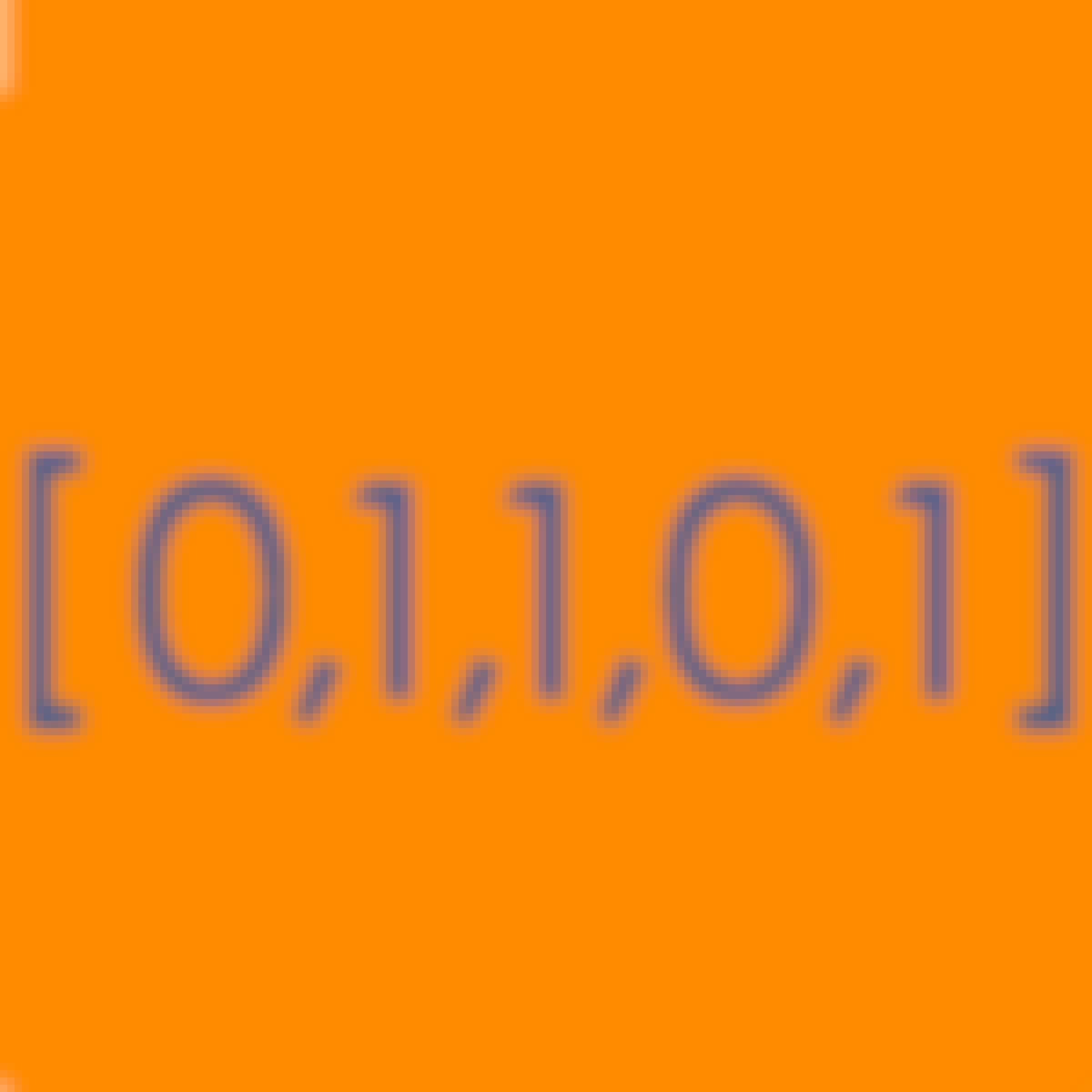 Status: Free TrialFree Trial
Status: Free TrialFree TrialSkills you'll gain: Data Import/Export, Java Programming, Java, Computer Programming, Data Structures, Object Oriented Programming (OOP), File Management, Integrated Development Environments, Computer Science
4.6·Rating, 4.6 out of 5 stars44 reviewsBeginner · Course · 1 - 4 Weeks
 Status: NewNewStatus: Free TrialFree Trial
Status: NewNewStatus: Free TrialFree TrialSkills you'll gain: JSON, Data Structures, Javascript, Application Programming Interface (API), Object Oriented Programming (OOP)
Intermediate · Course · 1 - 4 Weeks
 Status: Free TrialFree Trial
Status: Free TrialFree TrialSkills you'll gain: Data Structures, Algorithms, Graph Theory, Programming Principles, Theoretical Computer Science, Computer Science, Computer Programming, Python Programming, Pandas (Python Package), Machine Learning Algorithms, Computational Thinking, C++ (Programming Language), Data Architecture, Random Forest Algorithm, Performance Tuning, Object Oriented Programming (OOP), Network Analysis, Program Development, Problem Solving, Debugging
4.5·Rating, 4.5 out of 5 stars34 reviewsIntermediate · Specialization · 3 - 6 Months
Searches related to arrays
In summary, here are 10 of our most popular arrays courses
- Java: Arrays, Loops, Methods, and Encapsulation: Whizlabs
- Learn to Teach Java: ArrayLists and 2D Arrays: University of California San Diego
- Introduction to Java and Object-Oriented Programming: University of Pennsylvania
- Exam Prep: Oracle Certified Associate, Java SE 8 [1Z0-808]: Whizlabs
- Microsoft Introduction to C++ Programming: Microsoft
- FPGA Design for Embedded Systems: University of Colorado Boulder
- JavaScript Mastery – Zero to Hero for Interviews: Packt
- Foundations of Data Structures and Algorithms: University of Colorado Boulder
- Become a C++ Pro: The Ultimate Developer Guide: Packt
- Java Basic Structures: Arrays, Strings, and Files: Codio
Frequently Asked Questions about Arrays
Arrays are a fundamental data structure in computer programming that allow you to store multiple values of the same type in a single variable. They provide a way to easily organize and manipulate large amounts of data.
In simple terms, an array is like a container that can hold multiple values. Each value stored in an array is called an element, and each element is assigned a unique index. The index is used to access and retrieve specific elements within the array.
Arrays are commonly used for tasks such as storing a list of numbers, strings, or objects, and performing operations on them. For example, you can use an array to store a group of students' names or keep track of sales figures for a company.
To better understand arrays, imagine it as a row of boxes, where each box can hold one value. You can access a specific box by referring to its position (index) in the row. You can also insert new values, remove existing ones, or modify the content of any box.
Arrays provide flexibility and efficiency in programming as they allow you to perform operations on a collection of elements all at once, rather than individually. They are an essential concept to learn when diving into programming or any other field requiring data manipulation and organization.
To work with arrays, you'll need to learn the following skills:
Basic programming concepts: Understand variables, data types, functions, and loops as a foundation for working with arrays.
Array declaration and initialization: Learn how to declare an array, define its size, and initialize its elements with values.
Indexing and accessing array elements: Understand how to access individual elements of an array using their indexes.
Array manipulation: Learn various array operations like inserting, deleting, updating, and searching for elements within an array.
Multi-dimensional arrays: Explore how to work with arrays that have multiple dimensions, such as matrices or tables.
Array algorithms and operations: Familiarize yourself with array-specific algorithms and operations like sorting, merging, and searching.
- Memory management: Understand the memory allocation and deallocation aspects associated with array declaration and usage.
Mastering these skills will equip you to effectively utilize arrays in your programming projects and increase your overall proficiency in working with data structures.
With skills in Arrays, you can pursue various jobs in the field of software development and programming. Some typical job roles that require Arrays proficiency include:
Software Developer: As a software developer, you will use Arrays to manipulate and organize data efficiently. Arrays are a fundamental data structure used in many programming languages, and understanding them is essential for developing software applications.
Web Developer: Arrays are commonly used in web development to manage and manipulate data. With Arrays skills, you can create dynamic web pages, handle form submissions, and perform various data-related tasks.
Data Analyst: Arrays play a crucial role in data analysis and data manipulation. As a data analyst, you will use Arrays to store and process large volumes of data, perform statistical analysis, and generate meaningful insights for business decisions.
Game Developer: Arrays are extensively used in game development to store and handle data related to game objects, levels, and player achievements. With Arrays skills, you can work on creating interactive gameplay experiences and optimize game performance.
System Engineer: Arrays are vital for optimizing memory allocation and managing data in computer systems. System engineers utilize Arrays to develop algorithms and data structures, ensuring efficient resource utilization and overall system performance.
Algorithm Designer: Arrays form the foundation of many algorithms, such as sorting and searching algorithms. With Arrays skills, you can work on designing efficient algorithms for various applications, such as image processing, optimization, and machine learning.
- Database Administrator: Arrays are utilized in database management systems to store and manipulate large sets of data. With Arrays skills, you can work as a database administrator, responsible for designing, implementing, and optimizing database structures.
These are just a few examples of potential jobs where Arrays skills are valuable. Depending on your expertise and interests, there are numerous opportunities across industries that require proficiency in Arrays and related programming concepts.
People who are logical thinkers, detail-oriented, and have a strong understanding of basic programming concepts are best suited for studying Arrays. Additionally, individuals who enjoy problem-solving and have a knack for organizing and manipulating data would find studying Arrays particularly interesting and beneficial.
Here are some topics related to Arrays that you can study:
Introduction to Arrays: Learn the basics of arrays, including what they are, how they are used, and the advantages and disadvantages of using arrays.
Array Operations: Explore different operations that can be performed on arrays, such as accessing elements, inserting and deleting elements, merging arrays, and sorting arrays.
Multi-dimensional Arrays: Dive into the concept of multi-dimensional arrays, understanding how they are structured and used for handling complex data structures.
Dynamic Arrays: Understand dynamic arrays, also known as resizable arrays, which allow for the size of the array to change during runtime.
Array Algorithms: Explore various algorithms that are specifically designed for arrays, including searching algorithms (linear search, binary search), sorting algorithms (bubble sort, insertion sort, merge sort), and more.
Array Data Structures: Study different data structures that rely on arrays, such as stacks, queues, matrices, and linked lists.
Array Memory Management: Learn about the memory management techniques used in arrays, including contiguous memory allocation, memory fragmentation, and how to deallocate arrays.
Array Applications: Discover the practical applications of arrays in various fields, such as image processing, data analysis, algorithm design, and game development.
Array Implementation in Programming Languages: Explore how arrays are implemented in programming languages such as Python, Java, C++, and JavaScript, including their syntax and built-in functions.
- Array Optimization: Gain insights on optimizing array operations, including reducing time and space complexity, improving performance, and leveraging parallel processing.
Remember, for each topic, you can find online courses, tutorials, articles, and resources specifically tailored to suit your learning needs.
Online Arrays courses offer a convenient and flexible way to enhance your knowledge or learn new Arrays are a fundamental data structure in computer programming that allow you to store multiple values of the same type in a single variable. They provide a way to easily organize and manipulate large amounts of data.
In simple terms, an array is like a container that can hold multiple values. Each value stored in an array is called an element, and each element is assigned a unique index. The index is used to access and retrieve specific elements within the array.
Arrays are commonly used for tasks such as storing a list of numbers, strings, or objects, and performing operations on them. For example, you can use an array to store a group of students' names or keep track of sales figures for a company.
To better understand arrays, imagine it as a row of boxes, where each box can hold one value. You can access a specific box by referring to its position (index) in the row. You can also insert new values, remove existing ones, or modify the content of any box.
Arrays provide flexibility and efficiency in programming as they allow you to perform operations on a collection of elements all at once, rather than individually. They are an essential concept to learn when diving into programming or any other field requiring data manipulation and organization. skills. Choose from a wide range of Arrays courses offered by top universities and industry leaders tailored to various skill levels.
When looking to enhance your workforce's skills in Arrays, it's crucial to select a course that aligns with their current abilities and learning objectives. Our Skills Dashboard is an invaluable tool for identifying skill gaps and choosing the most appropriate course for effective upskilling. For a comprehensive understanding of how our courses can benefit your employees, explore the enterprise solutions we offer. Discover more about our tailored programs at Coursera for Business here.










